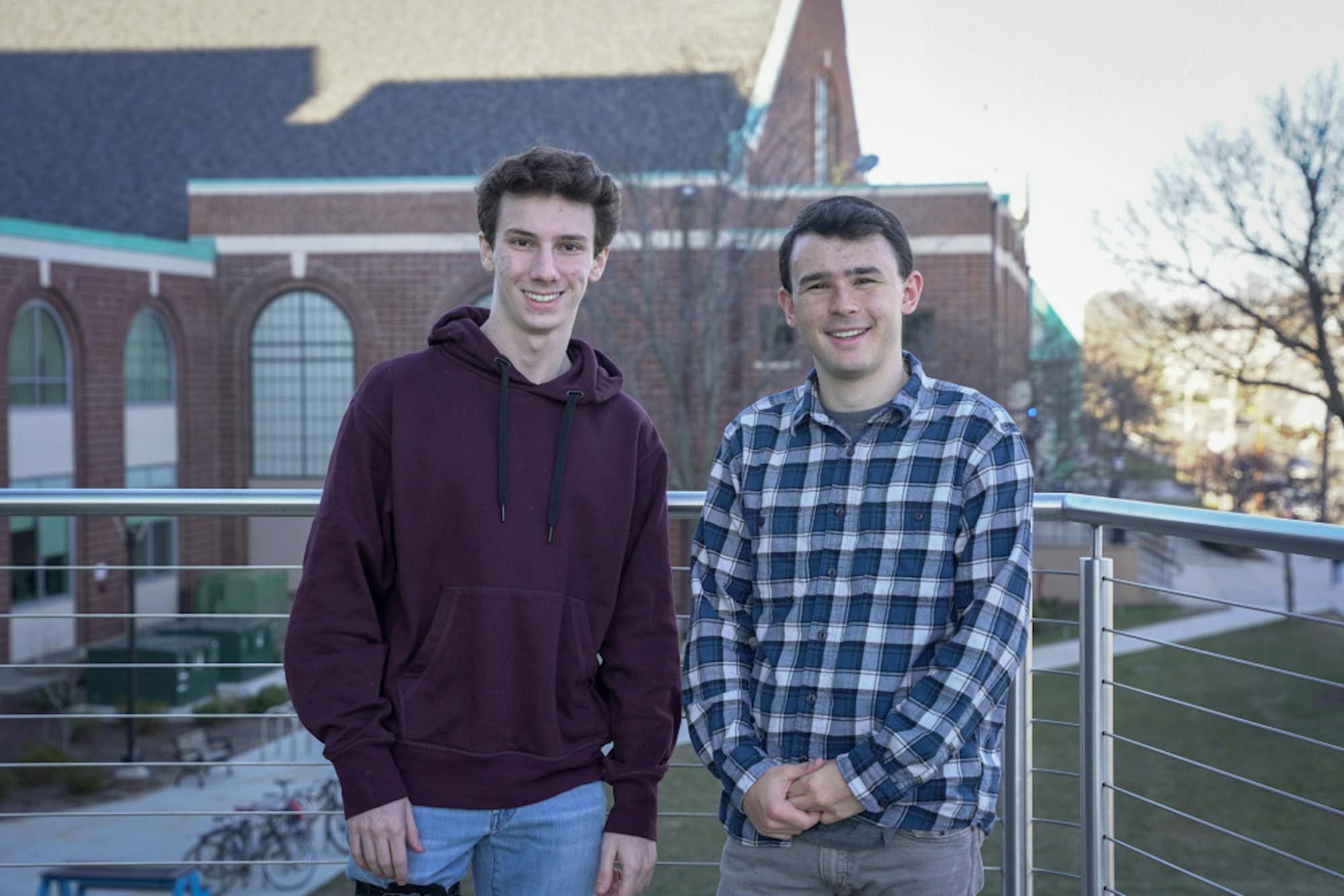Tufts juniors Thomas Hershewe and Asher Smith won the Best Student Paper Award, given out yearly by the New England Chapter of the American Association for Public Opinion Research, for their political research. Along with the award, they received $100 in personal funding each and a free trip to Philadelphia in May, where they will have the chance to present their research at the annual AAPOR conference.
The award-winning paper, entitled “Stacked or Subordinate? Exploring the Relationship between Rural and Partisan Identities,” details the findings of the research project they completed in their Polling the 2022 Elections class. This political science seminar class, taught by Professor Brian Schaffner and offered every federal election year, gives students the opportunity to run a survey experiment right before whatever election is taking place that year and then write a paper about what they found.
Both Hershewe and Smith cited Schaffner as a major mentor for them.
“Professor Schaffner was really helpful to us,” Hershewe said. “We met with him probably every week to talk about what we were doing right, what we were doing wrong and where to improve. … Meeting with him on anything, he was super helpful to both of us.”
Smith agreed and added his appreciation for how welcoming he felt Schaffner had been.
“I’m not a political science major, … so I don’t have a lot of exposure to how you do political science research,” Smith said. “It was really helpful having Professor Schaffner be open to having me in the class. … He just did a good job accommodating me.”
Schaffner, likewise, sung the praises of his two mentees.
“Thomas and Asher were both in my public opinion class in spring 2022, and they were both very engaged and very interested in the research behind public opinion. So I invited both of them to consider taking my polling class in the fall,” Schaffner said. “They brought the same enthusiasm and creativity that I had seen in the public opinion class to the polling class as well, which was great.”
Schaffner is no stranger to public recognition of his students’ work. Hershewe and Smith are the third pair of Jumbos to win this award in the past three years, and all of the recent recipients have been Schaffner’s students.
“I like that we’re creating a tradition where students in this class often write award-winning papers,” Schaffner joked.
Schaffner spoke of a general feeling of pride whenever his students’ work gets recognized.
“I sort of live vicariously through their accomplishments,” Schaffner said. “My goal is to set up a space of resources for students who want to do research. … And when those students produce work that’s really great, then I feel gratified that I’ve helped them to succeed in a way that maybe [they could not] have achieved without that structure.”
Schaffner also noted that Hershewe and Smith’s victory was especially impressive, considering they were up against more experienced students.
“Several of the papers that were submitted actually came from students in graduate programs, and so the fact that [Hershewe and Smith] won even when they were up against graduate students … was really great,” Schaffner said.
Going into the class, Smith had done a project in a previous class with Schaffner on attitudes toward housing and knew he had a more general interest in the urban-rural divide.
“Thomas seemed to have a good grasp of the scholarship in the area, so he seemed like a really great person to work with,” Smith said.
What they saw in the results from their research was that for Republicans, the partisan priming did not make much of a difference, but for rural and small-town Democrats, there was a significant decrease in rural identities in the priming group.
Smith explained that “[Rural Democrats’] rural identity is affected by whether they’re thinking in a partisan frame of mind.”
Their results also indicated that for rural Democrat voters, when a candidate’s party was specified, the voters were much more likely to let this influence their decision than whether the candidate was from a rural or urban place.
In short, Smith said, this means that when rural Democrats are voting, “their partisan identity supersedes their place-based identity.”
When asked about whether these results brought up any ideas for questions for subsequent research, Smith explained that suburban respondents had been grouped with urban respondents due to similar rural identity scores, but he was open to examining the two categories more closely in the future.
Hershewe added that their work also “opens a lot of questions about suburban identity and the relationship between rural Democrats and suburban Democrats and how that’s changing.”
For Hershewe, these loose ends are just a reason to keep going with this type of work if he gets the chance before graduating from Tufts.
“If I have the opportunity again, I want to continue [doing this work], especially along the topics of the paper,” he said. “We opened a lot of questions in our paper and I want to figure those out because I think they’re important, and I think it can contribute to the realm of political science literature.”






